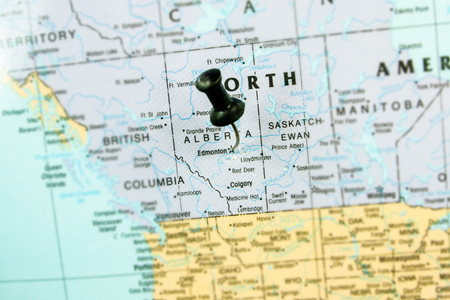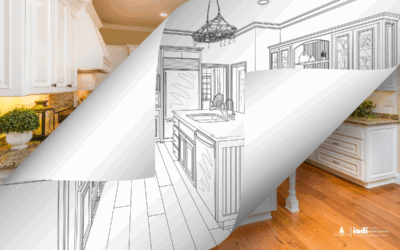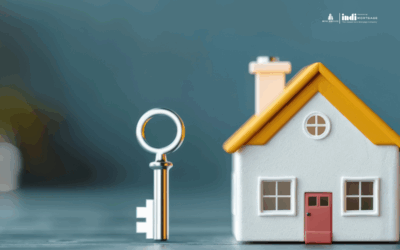Welcome To Our Mortgage Educational Blog About:
Everything You Need to Know About Edmonton Housing Market

The housing market—though vibrant—is a complicated ecosystem. From the moment you decide to make the jump to purchase or rent a home, you’re bound to face challenges, both big and small. Your journey will likely span weeks, if not months, as you work towards a final product that both meets your expectations and suits your needs. And though the market is undeniably competitive, it doesn’t have to be difficult to navigate.
With the right mindset, a little bit of know-how, and the support of a professional, you can achieve your housing goals in Edmonton—and across Canada—with ease. To assist you in your endless endeavor to secure a home in Edmonton, we’ve compiled a list of everything you need to know about the Edmonton housing market. From the latest statistics to unique perspectives on the market from both buyer and seller perspectives, this guide has it all. So, without any further ado, let’s get started!
How Much Is an Average Home in Edmonton?
Edmonton being a diverse, multi-cultural city, it’s no surprise that there are quite a few different neighborhoods within its boundaries. For example, houses average$475,000 in trendy Westmount, whereas southside suburbs like Millwoods average only $241,000.. Far south communities like Beaumont and Leduc do tend to be slightly more expensive but still vary significantly from neighborhood to neighborhood. What really influences home prices in Edmonton is just how desirable your specific community is. So, if you’re looking for a prime piece of real estate in one of Edmonton’s best neighborhoods, you’ll have to shell out at least around half a million dollars. However, if you’re looking for something more affordable—perhaps as an investment property—you can expect your price range to fall somewhere between $200k and 300k.
How Much Should You Spend on Your First Home in Edmonton?
If you have decided to take that next step to purchase your first home in Edmonton, you might be wondering just how much to set aside. Just remember, there’s a difference between a down payment and closing costs. A good rule of thumb is to plan for around 20% as a down payment, which will equate to at least $80k if we’re talking about an average home price of $400k. First-time home buyers’ closing costs typically run anywhere from 2-5% of your total purchase price—or around $20k on a typical house price in Edmonton—so factor that into your calculations too.
And remember these are ballpark figures for making sure that you’ll have enough money available for whatever comes up during escrow. What’s escrow? It’s basically when your bank processes all of the paperwork involved with purchasing your new property. This can often cause delays, so it’s important to have enough capital on hand to cover any unexpected or extra fees that come up throughout this process.
For instance, homeowners’ insurance policies typically cost around 0.5% of a property’s value—so if you purchased an average $450k home in Edmonton, it would cost you $2250 per year! So, make sure to budget accordingly. We also recommend reading our first-time home buyers incentive guide to save on some of the costs associated with buying a home in Edmonton.
Things to Consider When Buying Your First Home in Edmonton Housing Market
Every buyer is different, so there’s no one size fits all solution when it comes to buying your first home. But that being said, here are a few things you might want to consider before purchasing your first home. Of course, these considerations will vary greatly depending on whether you’re a homeowner or a tenant; but we’ve broken down some of our general takeaways based on our experience as real estate agents throughout Edmonton.
There’s never a wrong time to purchase—especially if you can afford it! The housing market is always changing, and right now is an especially great time for buyers. Property values are strong; there are low unemployment rates across Canada, and mortgage rates are extremely competitive. That being said, don’t let yourself be rushed into making decisions just because everyone else seems to be doing it at once. Take your time and get familiar with what’s out there before settling on anything. After all, a hasty decision is rarely an informed one!
Is Renting Better Than Buying A House In Edmonton Housing Market?
Well, it really depends on your situation and personal preferences. If you want to be in control of your property and live in a neighborhood that doesn’t make you feel unsafe, buying may be a good option for you. But if renting is more affordable and you don’t like being tied down by property ownership, renting may be your best bet! It’s all about finding what works best for you—and that applies whether or not you’re living in Edmonton. Just remember: rental properties aren’t always easy to come by, so make sure to research average prices, vacancy rates, lease terms, and any other information that will help inform your decision before moving forward with anything.
Where Is the Best Place to Invest In Real Estate In Edmonton Housing Market?
Chappelle Gardens & Glenridding Heights boasting 3.9% and 6.1% growth rates, respectively, over a year period, seems to be your best bet right now! These areas are both brand new developments, located at the edge of Edmonton’s city limits, near Anthony Henday Drive (Edmonton’s ring road). With plenty of new retail centers slated to open in these neighborhoods in 2022, their prices are expected to grow substantially—giving you a great opportunity to invest before things get too expensive.
Conclusion
In conclusion, whether you’re a homeowner or a tenant, it’s important to do your research before making any real estate decisions. It’s easy to get caught up in the hype—especially if you’ve never bought property before—but a little research can go a long way in helping you decide what is best for you. If you want more information on the Edmonton housing market or would like some advice on getting into real estate investing, then feel free to contact us, and we’ll be happy to help!
If you need more information about the topic or any other questions about home buying mortgages, don’t hesitate to contact us.
Recent Educational Blogs
Thinking About Flipping a House in Edmonton?
May 2025 | Flip Mortgage ProgramAre you eyeing that “fixer-upper” in Edmonton and dreaming of turning it into a showstopper? House flipping is more popular than ever, and with the right mortgage program, it’s easier to get started than you might think!What is a Flip...
Unlocking the Value in Your Home
April 2025 | Home Equity Unlocking the value in your home can be a smart way to fund major renovations or get a handle on high-interest debt. If you’ve built up equity—the difference between your home’s current value and what you still owe on your mortgage—you may be...
To Refinance or Not to Refinance: Navigating Mortgage Renewal in 2025
March 2025 | To Refinance or Not to RefinanceAs mortgage renewal season approaches, many homeowners are grappling with a critical question: Should I refinance my mortgage? With interest rates higher than what many locked in years ago and looming financial pressures...



